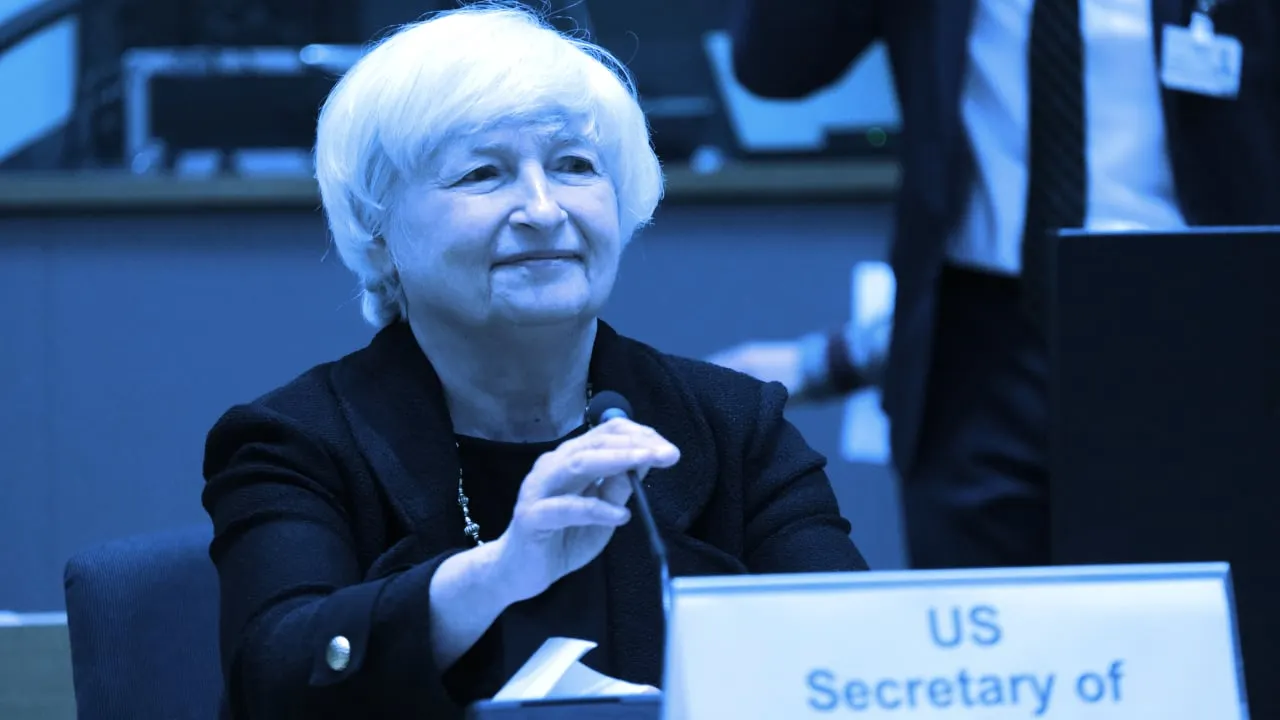Secretary Treasury Janet Yellen added her voice to the growing chorus of Washington leaders demanding action in the wake of crypto exchange FTX’s collapse last week, saying on Wednesday that the meltdown has demonstrated “the need for more effective oversight of cryptocurrency markets.”
Yellen, in a statement, claimed that reports generated by the Treasury Department in response to President Biden’s September executive order on digital assets identified many of the risk factors at play in FTX’s collapse and subsequent bankruptcy, implying that had those reports turned into policy, the calamity could have been prevented.
“Some of the risks we identified in these reports, including comingling of customer assets, lack of transparency, and conflicts of interest, were at the center of the crypto market stresses observed over the past week,” said Yellen.
Despite those reports, no comprehensive framework yet exists that would bring crypto under one federal regulatory umbrella.
Financial regulators like the Securities and Exchange Commission (SEC) and the Commodities Futures Trading Commission (CFTC) have stalled in releasing specific guidance for crypto companies and exchanges, though both agencies have sporadically pursued enforcement actions against certain crypto companies. Federal lawmakers, meanwhile, are currently mulling over legislation that would clarify crypto regulation, though no such bill has yet been taken to a vote.
Washington was invigorated with a newfound urgency to take a larger role in overseeing the crypto market this week after the stunning undoing of once-dominant FTX and its sister trading firm Alameda Research. Last week, a report surfaced showing that almost half of Alameda’s $14 billion balance sheet consisted of FTT, the utility token used to get discounts on trading fees on FTX’s platform. Sam Bankman-Fried, founder of both FTX and Alameda, had long insisted the two companies were separate entities.
The news prompted crypto exchange Binance to announce it would be liquidating its $580 million FTT position; that announcement triggered a subsequent multi-billion dollar bank run on FTX, and the exchange paused withdrawals 48 hours later due to insufficient funds. Binance moved to bail out once-rival FTX, but within a day the deal fell apart, apparently due to the troubling state of FTX’s books. On Friday, FTX filed for bankruptcy.
The saga, and its devastating impact on hundreds of thousands of customers, has provided regulators and lawmakers in Washington with greater ammunition to take aim at the crypto industry.
Yellen appeared eager to activate not just federal agencies like the SEC, but lawmakers, in her appeal for more regulatory action.
“The federal government, including Congress […] needs to move quickly to fill the regulatory gaps the Biden Administration has identified,” the Treasury Secretary said.
But Yellen also put some blame on federal regulators, chastising them for failing to use already existing laws to prevent the market’s current turmoil.
“We have very strong investor and consumer protection laws for most of our financial products and markets that are designed to address these risks,” said Yellen. “Where existing regulations apply, they must be enforced rigorously so that the same protections and principles apply to crypto assets and services.”
The risks posed by failing to effectively regulate crypto—either by leveraging existing laws or by creating a novel framework—could be far more devastating and far-reaching than even current conditions, the Secretary warned.
“Spillovers from the events in crypto markets have been limited,” Yellen said. “But […] further interconnections of the traditional financial system and crypto markets could raise broader financial stability concerns,” she said, echoing concerns that the Treasury Secretary has previously raised.

